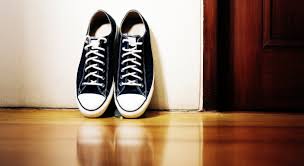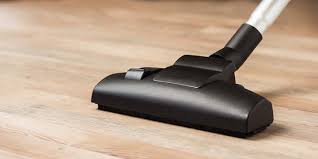Vacuum Cleaner Head For Timber Floors

Hardwood floors are always high in-demand, and that’s why you always find a growing trend of hardwood vacuums being marketed to you left and right. There are so many different styles and models being introduced into the market each year that finding the best one for your home is starting to become a long, tedious, and complicated task. With so many choices available, it’s more important now than ever to understand what makes a vacuum “the best” for cleaning hardwood surfaces. How do you find a great hardwood floor vacuum without spending more than you need to? What are the features to look for, and what should you try to avoid? These are some of the questions that will be answered in this article. The goal is to help you find the best vacuum designed for wood floors, without overspending, or regretting your purchase afterwards. Before you even start looking at all the great vacuums available, you need to understand that vacuums are not only created differently in terms of quality, but also in terms of its purpose.

To get the most value out of your time and money, you want to avoid spending countless hours researching “top rated vacuum cleaners” only to discover that it’s not even a “hardwood vacuum”. What a lot of people don’t realize is that most of these highly rated vacuums got their high ratings because they work great as a general purpose cleaner. They do an excellent job cleaning carpets, but many of them are not designed with hardwood floors in mind. Choosing a machine that’s not specifically designed for hardwood cleaning, can carry a real risk of damaging your valuable floor. So, before you dive into your research and start scanning through customer reviews, make sure the vacuum you’re looking at is suitable for hardwood surfaces. If there are no specific mentions anywhere in the description, you’ll want to check to see if it meets the following criteria: It goes without saying, but vacuums come in many different types and styles. Here are some questions you need to ask yourself before buying:

Regardless of which style of vacuum you choose to meet your specific needs and preference, the important part is making sure that it’s hardwood-friendly and meets most of the criteria mentioned earlier in this article (not added as an after-thought).
Large Sofa Throw Ireland A lot of canister, stick, backpack and handheld vacuum models fall under the category of lightweight vacuum cleaner, and they tend to be favorite choices for most hardwood floor owners because of their lightweight design, convenience, maneuverability, and ease of use.
Tiny Red Bugs On Patio Furniture No matter what you’re purchasing, price is something that almost always needs to be considered.
Floor Drain Vinyl Flooring For many people, price is usually a determining factor.

If you’re low on cash, you can still purchase the best vacuum in your price range if you know what features to look for. There are powerful and efficient vacuums available at many different price points. On the other hand, if you don’t have a budget limit, by all means, go crazy. I usually don’t recommend this because the ‘most expensive vacuum’ is usually not the best. There are pros and cons to both approaches. Buying locally usually means you don’t pay any shipping charges, and you also get to physically touch it before buying. Buying online can mean better availability, bigger discounts, better overall pricing, and the convenience of having it sent right to your doorstep. To help get you started, here’s a quick comparison chart of the top 3 vacuums for hardwood floor based on customer ratings and reviews in 2016:The top performers in our review are the Shark Rotator Powered Lift-Away, the Gold Award winner; the BISSELL Hard Floor Expert Deluxe, the Silver Award winner;

and the BISSELL BOLT XRT PET 2-in-1, the Bronze Award winner. Here’s more on choosing a system to meet your needs, along with details on how we arrived at our ranking of 9 products. Hardwood floors are not only aesthetically pleasing, but they also increase the property value of your home. While they add beauty to the room they are in, hardwood floors are difficult to clean without damaging the surface. In order to clean a wooden floor without damaging it, you need a hard floor vacuum specifically designed to clean wooden floors. Hardwood floor vacuums have the same design and power as a standard vacuum, but they weigh significantly less, and you can adjust the features to make them safe to use on wooden floors. The best vacuums for hardwood floors have suction control settings that you can adjust for the surface you are cleaning. They also have either an automatic or a manual height adjuster, so you can change it to the most effective height for cleaning your hardwood. The ability to turn off the brush roll on your vacuum is the most important feature when working with wood.

Unless the bristles are made of fine material, they will scratch your hardwood as you roll your vacuum across it. Likewise, you will want rubber wheels so they don’t scratch the wood while you vacuum. Dyson makes several vacuums with features designed specifically for hardwood floors. With cyclonic technology, the vacuums safely remove dirt and particles from your hardwood without scraping the surfaces. However, we did not include any Dyson models on our lineup because Dyson's prices exceed the other vacuums' prices substantially. In order to provide the fairest comparison of products, we evaluated vacuums, whether they were stick, canister or upright, that are designed to clean hardwood floors and range in price from $50 to $250. Several other review lineups detail other types of vacuums and even more brands if you need more features than a hardwood floor vacuum has to offer. We have comparison lineups for standard upright vacuums, robot vacuums, stick vacuums (electric brooms) and shop vacuums.

The amount of dirt the vacuum picks up, as well as the noise level, serve as two key attributes of hardwood floor vacuums. Manufacturers promote the effectiveness of products, but exclude specifications based on collection levels and noise. We carried out our own tests to assess the effectiveness and quietness of each hardwood floor vacuum. In order to test how well the vacuums lift particles off a bare floor, we scattered a fixed amount of sawdust and evaluated how much of the distributed dust was lifted and how many passes it took to do so. For the most part, the vacuums lifted 90 to 100 percent of the sawdust off the floor, with the exception of the lower-ranked models that struggled to pick up everything. Regardless of how much dust was lifted off the floor, the best vacuums required minimal passes over the sawdust to pick it all up. These figures helped us determine which vacuums had the best suction power and most effective cleaning performance. While the amount of dirt the vacuum picks up is important, the noise level also figures in as a determining factor.

For each vacuum, we recorded the noise level directly above the motor. There were minimal differences between the vacuums. Cordless models produced the least amount of noise. When possible, Top Ten Reviews evaluates all products and services in hands-on testing. We try to simulate the experiences of a typical consumer. We either purchased or received the vacuums on loan for testing purposes. The companies had no input over our testing methodology. Results of our evaluations were not provided to the companies in advance of publication. While the vacuum’s effectiveness should serve as a leading consideration when purchasing a hardwood floor vacuum cleaner, other features and capabilities should factor into your choice. Here are a few key questions you should ask when considering what features you need: Brush Roll Shutoff: Will You Be Using the Vacuum on Multiple Floor Types? With hardwood floor vacuums, you have to be aware of what type of material the brush roll is made of.

If the bristles are soft, the brush roll is safe for hardwood, and you can use your vacuum with peace of mind. However, vacuums that work on carpets in addition to hardwood require a stiff brush roll in order to work effectively on carpeted areas. In those cases, the vacuum requires a brush roll shutoff that lifts the brush off the ground and turns it off while you vacuum bare floors. In some models, the vacuum does not have a brush roll at all and relies solely on the suction. Each of these types of vacuums will effectively and safely clean your hardwood floors. Premium Features: Do You Want a Corded or Battery-Operated Vacuum? Like standard vacuums, you can purchase hardwood floor vacuums that rely on either electric or battery power. For small cleanups or little rooms, a battery-operated vacuum effectively picks up the floor without the hassle of a cord. These vacuums have the same amount of power and suction as corded models, but weigh less and are easy to maneuver. However, the average life of a hardwood floor vacuum battery is only 15-20 minutes, and it usually takes between three and six hours to recharge it.

These types of models also tend to limit how many attachments you can use with the vacuum. With corded models, you do not have to worry about recharging your battery. You can vacuum multiple levels and entire homes; however, the length of the cord limits you to vacuuming one room at a time and then plugging it in again. Corded hardwood floor vacuums also come with a hose and cleaning tools to help you reach difficult areas like corners and edges. Our comparison chart details other important features to look for with hardwood floor vacuums. Whether the vacuum uses batteries or electricity, you will want a high number of volts or amps. Most vacuum motors range from seven to twelve amps on the corded models, providing a sufficient amount of power and suction to clean your floors. You also should consider the size of both the cleaning path and the dirt collector. Large cleaning paths reduce how many times you have to pass over the carpet. A high-capacity dirt container, whether it is a bag or cup, allows you to finish your vacuuming session before emptying the dirt out.